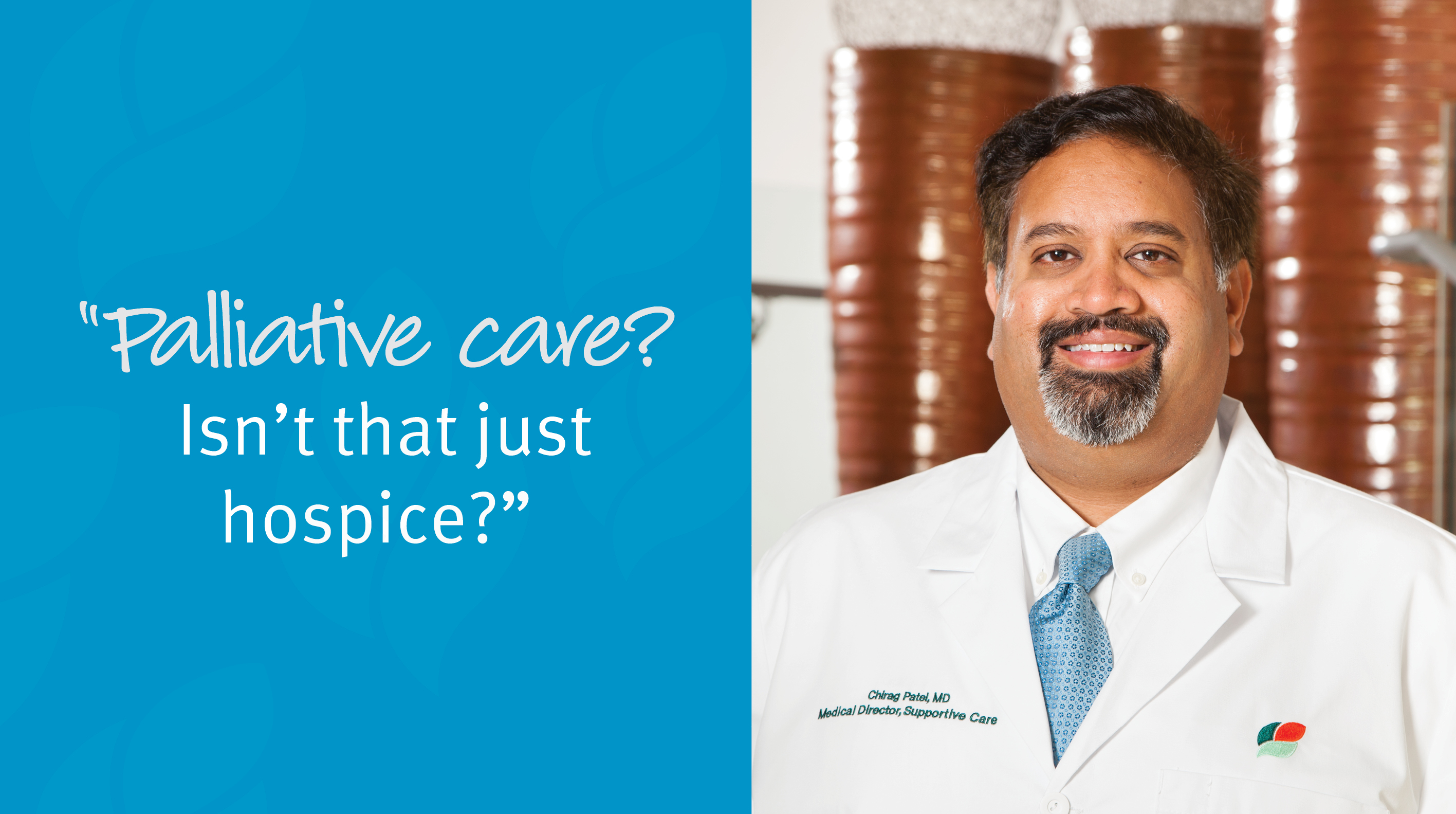
“Palliative care? Isn’t that just hospice?”
What’s the Difference Between Palliative Care and Hospice Care?
“Palliative care? Isn’t that just hospice?”
I can’t count how many times I have heard this comment, not just from potential patients and their families, but also from seasoned providers and healthcare leaders. So, I take a breath, find my happy place, and work on helping my immediate audience learn the difference.
All squares are rectangles, but not all rectangles are squares. In the same way, all hospice care is palliative care, but not all palliative care is hospice care.
Defining hospice
Hospice is a Medicare-instituted benefit, created in 1982 as part of the Tax Equity and Fiscal Responsibility Act. This ultimately became a permanent vehicle in 1986, to provide end-of-life care to patients and their families.
Hospice care is reserved for individuals with a terminal illness, and a life expectancy of 6 months or less. Certain forms of aggressive, restorative, and life-prolonging medical and surgical treatments and technologies are often not covered. Coverage of such therapies is left up to the discretion of specific hospices to fund.
The Hospice Medicare Benefit covers the cost of all care related to the individual’s terminal illness. Take a patient with terminal cancer, for example. The hospice benefit would pay for all medications related to this terminal condition, easing the financial or access burden to the patient and his or her family. The benefit also covers prescribed durable medical equipment necessary to support the patient’s quality of life and mitigate symptoms.
Hospice care is delivered by an interdisciplinary team of providers, including physicians, nurses, advance practice providers, social workers, pharmacists, volunteers, nurse aides, and others. Hospice care can be provided in a multitude of venues, including any place a person calls home. Some hospices have inpatient hospice support, either in standalone hospice houses where aggressive symptom management can be provided, or in embedded settings in partner hospitals or nursing homes.
Defining palliative care
Palliative care providers follow a very similar philosophy of care and team structure. The Center to Advance Palliative Care (CAPC) uses the following definition:
“Palliative care, and the medical sub-specialty of palliative medicine, is specialized medical care for people living with serious illness. It focuses on providing relief from the symptoms and stress of a serious illness. The goal is to improve quality of life for both the patient and the family. Palliative care is provided by a team of palliative care doctors, nurses, social workers and others who work together with a patient’s other doctors to provide an extra layer of support. It is appropriate at any age and at any stage in a serious illness and can be provided along with curative treatment.”
In layman’s terms, palliative care is differentiated from hospice care in the following ways:
- Palliative care is available during any phase of a patient’s chronic illness.
- Palliative care is offered alongside traditional medical support, and individuals are able to seek all forms of aggressive therapeutic and surgical support.
- Medical care is paid for by whichever payment plan the patient is already using, whether that’s commercial insurance, Medicare, or Medicaid. There is no palliative care equivalent to the government-funded hospice benefit.
Palliative care, like hospice, can be offered in hospitals, extended care facilities, long-term acute care facilities, ambulatory offices in both standalone or in embedded sub-specialty practices, primary care offices, and at home. Members of the palliative care team vary based on the care delivery site and defined needs. Hospital-based programs often are physician led, whereas community-based programs are often quite varied in their leadership structure, depending on the specific community’s palliative care needs.
I often tell my patients in our outpatient center that we are blessed to have today, that none of us are promised tomorrow. As palliative care providers, our responsibility is to continue to walk with them on this journey and to support them in their current clinical situation, wielding all resources and skills that a palliative care team possesses.
Author Profile
Latest entries
 ExpertiseApril 20, 2017“Palliative care? Isn’t that just hospice?”
ExpertiseApril 20, 2017“Palliative care? Isn’t that just hospice?”

